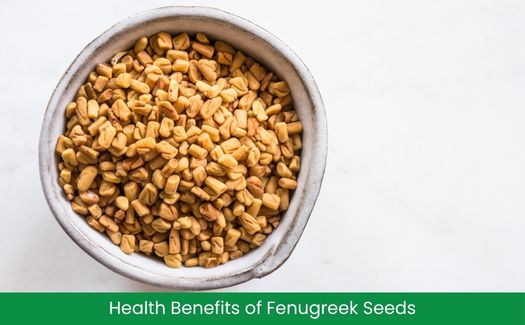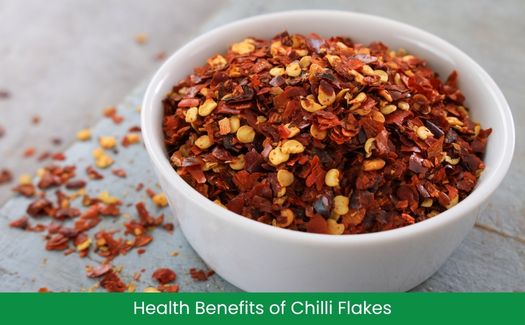Whole spices have been used for centuries not only to enhance the flavor of food but also for their therapeutic and medicinal properties. From ancient Ayurvedic and Chinese medicine to modern herbal remedies, whole spices have played a crucial role in supporting overall health and wellness. Rich in antioxidants, essential oils, vitamins, and minerals, these spices have earned their place in natural health remedies.
In this article, we will explore the health benefits of some of the most commonly used whole spices and their role in health and wellness, including their use in traditional remedies, their antioxidant and anti-inflammatory properties, their impact on digestive health and immunity, and their role in weight management and detoxification.
Cumin Seed
Cumin, a staple in both culinary and medicinal traditions, has long been celebrated for its digestive benefits. Cumin seeds are known to stimulate the secretion of pancreatic enzymes, which enhance digestion and nutrient absorption. They are also a natural carminative, meaning they help reduce bloating and gas. Additionally, cumin seeds are rich in iron and other nutrients, making them beneficial for overall health.
Health Benefits: Improves digestion, reduces bloating, boosts iron levels, and aids in weight management.
Fennel Seed
Fennel seeds are widely used for their ability to support digestive health and alleviate bloating and indigestion. Fennel seeds contain compounds like anethole, which have been shown to reduce inflammation and help relax muscles in the gastrointestinal tract. Fennel is also a rich source of antioxidants, helping to combat oxidative stress in the body.
Health Benefits: Soothes digestive discomfort, reduces bloating, and supports detoxification.
Fenugreek Seed
Fenugreek seeds are highly valued for their ability to regulate blood sugar levels and improve insulin sensitivity, making them especially beneficial for individuals with diabetes. They also contain soluble fiber, which can help lower cholesterol levels and promote heart health. Fenugreek has a history of use in traditional medicine to enhance lactation in nursing mothers.
Health Benefits: Regulates blood sugar, improves heart health, and boosts milk production in breastfeeding mothers.
Coriander Seed

Coriander seeds are rich in antioxidants, and their essential oils are known for their anti-inflammatory properties. In traditional medicine, coriander seeds have been used to treat digestive issues, including indigestion and nausea. They are also thought to help detoxify the body by promoting the excretion of toxins through the urinary system.
Health Benefits: Supports digestion, detoxifies the body, and has antimicrobial properties.
Dill Seed
Dill seeds are known for their ability to relieve indigestion, gas, and bloating. They contain compounds that have mild antibacterial and antifungal properties, making them useful in traditional remedies for digestive ailments. Dill is also thought to support liver health and reduce inflammation in the body.
Health Benefits: Relieves digestive issues, supports liver health, and reduces inflammation.
Bishop’s Seed
Bishop’s seed, often used in Ayurvedic medicine, is known for its ability to support respiratory health. It has been traditionally used to treat conditions like asthma, bronchitis, and coughs. The seeds contain compounds that help to open airways and ease breathing, while also possessing anti-inflammatory and antimicrobial properties.
Health Benefits: Supports respiratory health, reduces inflammation, and aids in treating coughs and asthma.
Ajwain (Carom Seed)
Ajwain, also known as carom seeds, is frequently used to treat digestive discomfort. Its essential oils contain thymol, which has antimicrobial properties and helps to stimulate the secretion of gastric juices, promoting better digestion. Ajwain is also known for its ability to relieve indigestion, bloating, and gas.
Health Benefits: Aids digestion, relieves bloating and gas, and supports respiratory health.
Red Chillies
Red chillies are not just a flavor enhancer; they also possess potent health benefits. They are rich in capsaicin, a compound known for its metabolism-boosting properties, making them beneficial for weight management. Red chillies are also rich in vitamin C, which supports immunity and overall skin health.
Health Benefits: Boosts metabolism, supports immunity, and helps with weight management.
Nigella Seed (Kalonji)
Nigella seeds, also known as Kalonji, have a long history of use in both cooking and traditional medicine. These seeds are believed to have powerful anti-inflammatory and antioxidant properties. They are often used to support immune health, reduce inflammation, and manage conditions like asthma and allergies.
Health Benefits: Supports immune function, reduces inflammation, and may help manage allergies and asthma.
Bay Leaf
Bay leaves are commonly used in cooking, but they also have medicinal properties. They contain compounds that are known to support digestive health by easing bloating and indigestion. Additionally, bay leaves are rich in antioxidants and have antimicrobial properties, helping the body fight infections.
Health Benefits: Improves digestion, supports immune function, and has antimicrobial properties.
Turmeric
Turmeric is one of the most well-known spices globally for its medicinal properties. The active compound curcumin found in turmeric has powerful anti-inflammatory and antioxidant effects. Turmeric is widely used to relieve pain, reduce inflammation, and support joint health. It is also known for its role in detoxification and liver support.
Health Benefits: Reduces inflammation, supports liver health, improves joint health, and promotes detoxification.
Stevia Leaves
Stevia leaves are best known for their natural sweetness, but they also have medicinal benefits. Stevia is often used as a natural sweetener, especially in diabetic diets, as it does not raise blood sugar levels. Additionally, stevia has antioxidant and anti-inflammatory properties that support overall health.
Health Benefits: Natural sweetener for diabetics, antioxidant, and anti-inflammatory properties.
Chilly Flakes
Chilly flakes, made from dried red chillies, are often used in cooking for their spicy kick. They contain capsaicin, which can help to increase metabolism, support fat burning, and improve circulation. Chilly flakes also support digestive health and may have antimicrobial properties that help fight infections.
Health Benefits: Boosts metabolism, supports fat burning, and aids digestion.
Cinnamon

Cinnamon is not only a popular spice in food but also a powerful medicinal herb. It has strong anti-inflammatory and antioxidant properties, making it beneficial for managing blood sugar levels, promoting heart health, and supporting digestive function. Cinnamon is also known to reduce the risk of cardiovascular disease by improving cholesterol levels.
Health Benefits: Reduces blood sugar levels, supports heart health, and aids in digestion.
Senna Leaves
Senna leaves are widely known for their powerful laxative properties. They are used in traditional medicine to relieve constipation and promote regular bowel movements. Senna contains compounds that stimulate the muscles of the bowel, which helps to alleviate constipation. It is often used in detox programs for its cleansing effect.
Health Benefits: Relieves constipation, promotes detoxification, and supports bowel health.
Sesame Seeds
Sesame seeds are a rich source of healthy fats, proteins, and essential vitamins and minerals. These seeds are known for their ability to improve heart health by lowering cholesterol levels. They also have anti-inflammatory properties and are beneficial for bone health due to their high calcium content.
Health Benefits: Improves heart health, supports bone health, and provides anti-inflammatory benefits.

Senna Pods
Senna pods are the fruit of the senna plant and are used similarly to senna leaves for their laxative effects. They help promote regular bowel movements and are often used in herbal teas and supplements aimed at relieving constipation. The pods are known for their natural detoxifying properties.
Health Benefits: Relieves constipation, promotes regular bowel movements, and aids detoxification.
Medicinal Uses of Whole Spices in Traditional Remedies
Whole spices have been used in traditional remedies for thousands of years. They are commonly found in Ayurvedic, Traditional Chinese Medicine (TCM), and other herbal healing practices. These spices are often used in their whole form to create tinctures, teas, powders, and oils, each offering various medicinal properties, from digestive support to reducing inflammation and enhancing immune function.
Antioxidant and Anti-Inflammatory Properties of Whole Spices
Many whole spices are rich in antioxidants, which help to neutralize free radicals in the body. For example, turmeric, cinnamon, and cloves are known for their strong antioxidant effects. These antioxidants help reduce oxidative stress, which is linked to chronic diseases like cancer, heart disease, and diabetes.
Spices like ginger, turmeric, and cumin also contain powerful anti-inflammatory compounds that can help reduce inflammation in the body, providing relief from conditions like arthritis, digestive disorders, and skin conditions.
Whole Spices for Digestive Health and Immunity
Whole spices such as cumin, fennel, and ginger have long been used to aid digestion. They can help alleviate symptoms of indigestion, bloating, and gas. Additionally, spices like turmeric, coriander, and ajwain support immune function, helping to ward off infections and enhance the body’s ability to fight illness.
Role of Whole Spices in Weight Management and Detoxification
Whole spices such as cinnamon, cumin, and turmeric are known to help boost metabolism, reduce fat storage, and promote detoxification. These spices stimulate the digestive system, aid in fat burning, and improve overall digestive health, making them useful tools in weight management programs. Additionally, many whole spices support the liver’s detoxification process, ensuring that harmful toxins are efficiently removed from the body.
Conclusion
Whole spices are not only culinary staples but also powerful agents for promoting health and wellness. With a wide range of health benefits—such as improving digestion, supporting immune function, reducing inflammation, and aiding in weight management—these natural ingredients continue to be valued in both traditional medicine and modern wellness products. Incorporating whole spices into your diet can enhance both the flavor and nutritional value of your meals while providing numerous therapeutic benefits for your body.
FAQs
Can whole spices be used in modern medicine?
Yes, many whole spices are used in modern medicine as natural remedies for various conditions, including digestive issues, inflammation, and chronic diseases. They are often found in herbal supplements and functional foods.
Are whole spices safe to consume daily?
When consumed in moderation, whole spices are safe for daily use and provide numerous health benefits. However, excessive consumption of certain spices (such as cinnamon or turmeric) may cause digestive discomfort in some individuals.
How can I incorporate whole spices into my diet?
Whole spices can be added to food in their natural form (such as cumin seeds in curries or cinnamon sticks in tea), or they can be ground into powders and used in baking, smoothies, soups, and stews.
What are the best whole spices for digestive health?
Cumin, fennel, ginger, and ajwain are excellent for digestive health as they help with bloating, gas, and indigestion.
Can I use whole spices for weight management?
Yes, spices like cinnamon, cumin, and turmeric can help boost metabolism, reduce fat storage, and aid in detoxification, making them helpful for weight management.
What role do whole spices play in detoxification?
Many whole spices, including turmeric, cumin, and ginger, support the liver in detoxifying the body by promoting the removal of toxins through digestion and circulation

